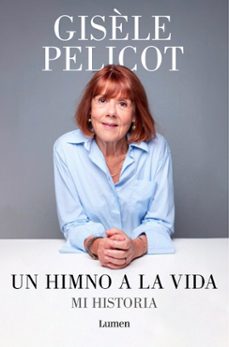📗 Libro en francés UNE VIE
STOCK- 9782234058170
Sinopsis de UNE VIE
At last, Simone Veil agrees to talk about herself in the first person. She recalls her childhood in the area of Nice in a family with Jewish roots, and of her deportation to the camps with her mother and one of her sisters in March 1944. In all the posts that she has occupied, Veil has stood out as one of the figureheads of French politics. The epitomy of a free woman, she has had positions of power which she never exploited to her own ends, but to better the living conditions of her fellow citizens. She worked for the Administration of Prisons, as well as for the Ministry of Health of the Jacques Chirac government under Valéry Giscard d’Estaing’s presidency. In the latter function, she worked against her own political side, for the vote for the legalization of abortion. She was head of the European Parliament – where she stood up to French Prime Minister Raymond Barre. She was also state minister ‘des Affaires Sociales, de la Santé et de la Ville’ in Balladur’s government under François Mitterrand’s presidency ; She was nominated at the Conseil constitutionnel as well as to the ‘Fondation pour la mémoire de la Shoah’. True to her belief of what the role of the survivors of the camps should be, she has testified again and again, in France and elsewhere. If the work of remembrance is crucial to Veil, it is not the past, however, but the future that concerns her, and the kind of world that will exist for her grand-children and great grand-children who occupy such a great place in her life.
Ficha técnica
Editorial: Stock
ISBN: 9782234058170
Idioma: Francés
Número de páginas: 416
Encuadernación: Tapa blanda
Fecha de lanzamiento: 19/12/2007
Año de edición: 2007
Plaza de edición: Paris
Especificaciones del producto
Escrito por Simone Weil
Nacida en París en 1909, en el seno de una familia agnóstica de procedencia judía, asiste al liceo Henri IV donde tiene como profesor de filosofía a Alain. Tras pasar por la Escuela Normal Superior, enseñará filosofía en liceos femeninos de provincias, hasta que sus dolores de cabeza crónicos la obliguen a abandonar las tareas docentes. Vinculada a grupos pacifistas y al sindicalismo revolucionario, a finales de 1934 deja por un tiempo la enseñanza para trabajar en distintas fábricas. Llevada por esta necesidad interior de exponerse a la realidad, asumirá a lo largo de su vida distintos trabajos manuales y participará brevemente en la guerra civil española, en la columna Durruti. Entre 1935 y 1938 tienen lugar sus sucesivos encuentros con el cristianismo, que la hacen cruzar un umbral, aunque sin cambiar el sentido de su vocación. Con la ocupación alemana, abandona París acompañando a sus padres, primero con destino a Marsella y luego a Nueva York. En contra de su deseo de volver a Francia para participar en la Resistencia, es destinada a labores burocráticas por los servicios de la Francia Libre. Consumida por la pena y por una anorexia voluntaria, muere en 1943 en el sanatorio de Ashford, cerca de Londres.
De Simone Weil han sido publicados en esta misma Editorial: Pensamientos desordenados (1995), Escritos de Londres y últimas cartas (2000), Cuadernos (2001), El conocimiento sobrenatural (2003), Intuiciones precristianas (2004), La fuente griega (2005), Poemas seguido de Venecia salvada (2006), Escritos históricos y políticos (2007), Carta a un religioso (2.ª edición, 2011), Echar raíces (2.ª edición, 2014), La condición obrera (2014), Reflexiones sobre las causas de la libertad y de la opresión social (2.ª edición, 2018), Primeros escritos filosóficos (2018), La agonía de una civilización y otros escritos de Marsella (2022), La Ilíada o el poema de la fuerza (2023), A la espera de Dios (6.ª edición, 2024) y La gravedad y la gracia (5.ª edición, 2025).
Descubre más sobre Simone Weil De Simone Weil han sido publicados en esta misma Editorial: Pensamientos desordenados (1995), Escritos de Londres y últimas cartas (2000), Cuadernos (2001), El conocimiento sobrenatural (2003), Intuiciones precristianas (2004), La fuente griega (2005), Poemas seguido de Venecia salvada (2006), Escritos históricos y políticos (2007), Carta a un religioso (2.ª edición, 2011), Echar raíces (2.ª edición, 2014), La condición obrera (2014), Reflexiones sobre las causas de la libertad y de la opresión social (2.ª edición, 2018), Primeros escritos filosóficos (2018), La agonía de una civilización y otros escritos de Marsella (2022), La Ilíada o el poema de la fuerza (2023), A la espera de Dios (6.ª edición, 2024) y La gravedad y la gracia (5.ª edición, 2025).
Recibe novedades de Simone Weil directamente en tu email
Opiniones sobre UNE VIE
¡Sólo por opinar entras en el sorteo mensual de tres tarjetas regalo valoradas en 20€*!


































